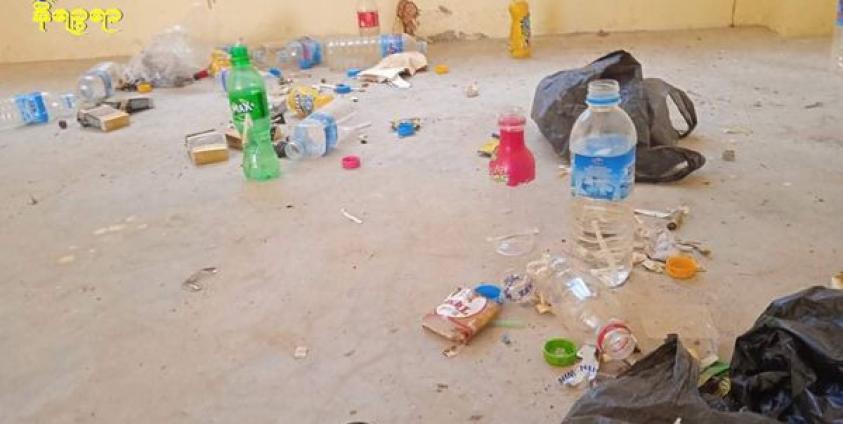Under the Military Council’s governance following the coup, there has been a significant increase in the trade of WY stimulant tablets (containing a mixture of methamphetamine and caffeine) in Rakhine State, and their use among young people has been on the rise, according to locals.
Also known locally as Asichay, used to be priced at 1000 kyat per tablet. However since the coup, the price has dropped to approximately 500 kyat, making it far more affordable, and increasing its consumption among local youth.
A Rakhine youth who has had the experience of using these WY tablets commented, “With the ease of purchasing WY Tablets, it’s concerning to see kids as young as 15 or 16 using them.
Prolonged usage of these tablets can have a negative impact on one’s health in the long run. Personally I have experienced regrettable consequences from using them. It’s important to remember that becoming obsessed with these tablets can cause us to lose sight of the future”, he warned.
“The trade of WY tablets in Rakhine State often leads to arrests, but typically only small-scale sellers are apprehended, while the large-scale drug dealers continue to operate with impunity. As a result, this form of illicit trade remains rampant in the region,” he added.
“The individuals responsible for distributing and selling tablets are often the same ones who have been in the business since the beginning. Despite arrests being made, the majority of those apprehended are low-level dealers without any real leadership role. Even these individuals are often released soon after and go back to their previous occupations, allowing the tablet market tocontinue operating at full speed without slowing down”, he pointed out.
The Military Council’s ability or will to control drug trafficking in the region is rapidly declining, leading to the widespread availability of WY tablets, and this has resulted in an increase in the number of young people using the drug, leading to a surge in crimes such as robbery and theft, according to locals.
Locals also voiced their concerns regarding the unimpeded flow of WY tablets across Military Council checkpoints and into Rakhine State, making the drug easily accessible to young people in the area. Sittwe, the capital of Rakhine State, is part of an alarming trend of young people engaging in the use and trade of WY tablets, more so than other cities in the region.
In certain deserted areas of the city, the use of this drug can even be observed during daytime hours, indicating a serious problem.
A young adult woman from Sittwe expressed concern to Narinjara regarding the need for better regulation and enforcement of the sale of WY tablets in Rakhine State, due to the rising number of users.
“The use of WY tablets has been increasing, especially among teenagers, due to their increased availability and lack of proper management and control. This has led to an increase in related crimes, such as theft and robbery, as drug users turn to illegal means to fund their addiction.
In Sittwe, the proliferation of such crimes has become a concern, and requires attention. Implementing stronger anti-drug laws and enforcement may help reduce the problem to some extent”, she said.
In addition to big cities, drug use conditions in rural areas are still as the same as before the coup, locals suggested.
“The current drug use situation appears to be stable, with no significant increase. The majority of users are young people. While there were many drug users in the past, the efforts of the Arakan Army (AA) to make arrests and take action have helped to reduce drug use. Although it’s possible that some people continue to use drugs behind the scenes, at least they are no longer using them openly in public like before”, a Minbay resident said.
Rakhine State has become a transit point for the illegal exportation of methamphetamine tablets to neighboring Bangladesh. Unfortunately, this has led to the emergence of illicit markets for the trading of these tablets within Rakhine State, which has resulted in an increase in th consumption of these tablets by young people in both urban and rural areas.







